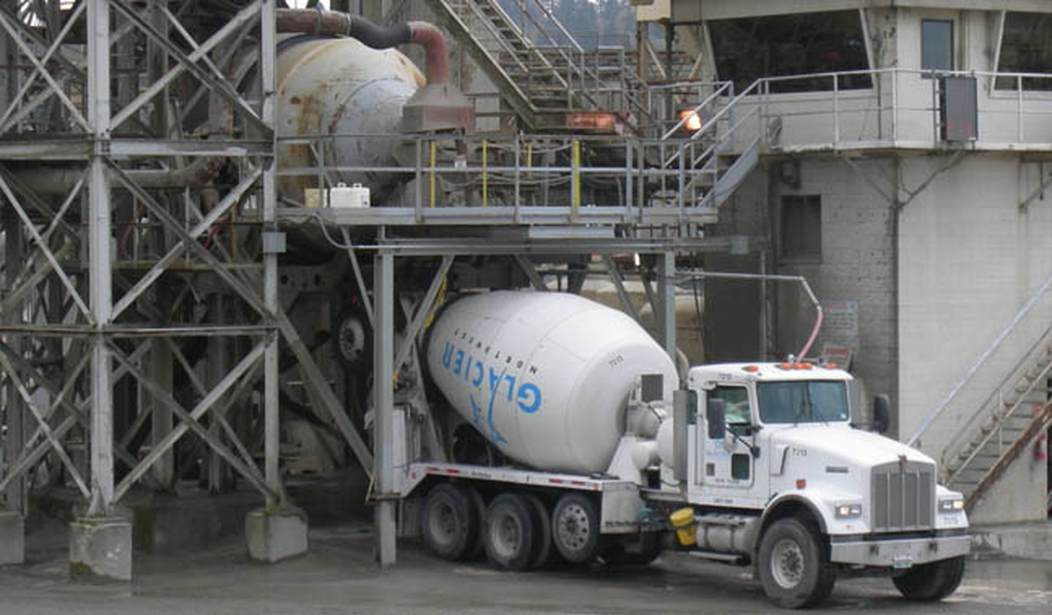Yesterday I wrote about the case Glacier Northwest Inc v International Brotherhood of Teamsters Local Union No. 174 which the Supreme Court announced it would consider back in October. If you missed the previous story go back and have a look for a more in depth explanation of what’s at stake here.
Briefly, the union held a strike back in August 2017, one which was announced early in the work day but after numerous concrete trucks had been filled and were on the road to dozens of different jobs. Rather than deliver the concrete, driver returned the trucks full and Glacier Northwest had to dump the concrete so it didn’t harden in the trucks and then have it broken up and hauled away. The company sued the union for the loss claiming it had timed the strike in order to intentionally waste the concrete. The case made its way through the courts until the Washington state Supreme Court ruled the company could not sue the union in state court because its actions were covered by the National Labor Relation Board.
While it’s true that in many cases companies cannot sue over loses resulting from a strike there are some narrow instances when they can show there was intentional destruction of company property. The fact that the Supreme Court took up the case was a signal that the conservatives might be ready to side with the company and might try to chip away at unions power to strike more broadly.
Today the oral arguments were held and not surprisingly responses to the case seemed to break along partisan lines.
Some of the conservative justices seemed inclined to bolster the ability of companies to take unions to state courts while liberal justices raised concerns about eroding organized labor’s power to strike.,,
Liberal Justice Elena Kagan said that a broad ruling in favor of companies could undercut union decisions on when to strike, which often are made to pressure employers by causing economic harm.
“When we start focusing on intent, without more, it pulls in pretty much every strategic decision that a union makes as to when to conduct a work stoppage,” Kagan said.
Conservative Chief Justice John Roberts said that there is a distinction between causing economic harm and intentional property destruction.
“The difference between the milk spoiling and killing the cow,” Roberts said.
That’s a good line but does that mean the union did nothing wrong because the concrete in this case is the equivalent of spoiled milk? In my view the difference here is that milk is going to spoil given enough time no matter what you do. Spoilage can’t be avoided. But concrete only ‘spoils’ once it’s mixed. Why did the union have to wait until the concrete was mixed that morning and loaded into trucks before calling the strike? It seems to me they timed the strike in order to intentionally spoil the concrete. Law & Crime has more on the arguments today.
“Could the state tell the union not to go on strike until the end of the day?” the justice asked. When Fransisco answered that it could not, Sotomayor next asked, “then what’s the difference between that and telling workers not to strike while the truck has cement in it?”
Justices Elena Kagan and Ketanji Brown Jackson joined in as well, each asking questions to tease out whether the ruined concrete was the result of a deliberate destruction of property, or simply a natural consequence of striking.
The Biden administration took a position which, superficially, would appear to help Glacier Northwest. The administration argued the Washington state Supreme Court shouldn’t have dismissed the case because they were obligated to view it in the light most favorable to the company. However, they also argued that, if the NLRB issues a decision, the court could rely on the outcome of that decision. In other words, the company would win a reprieve on technical grounds only to have the case likely dismissed in line with the NLRB decision anyway. Justice Sotomayor apparently made a joke out of the Biden administration’s appeal.
Assistant to the Solicitor General Vivek Suri argued on behalf of the Biden Department of Justice and urged the justices to adopt a clear rule in its opinion.
A moment of levity came when Sotomayor prompted Suri, “tell me how to write this decision.”
“I suggest copying our brief, your honor” the government’s lawyer answered jokingly, to the hearty laughter of the justices.
Finally, NBC seems a lot more confident than the other reports about where this is heading.
The Supreme Court on Tuesday indicated it would rule in favor of a concrete company in Washington state seeking to revive a lawsuit it filed against the International Brotherhood of Teamsters alleging that a strike damaged its product…
Based on questions of the justices during the oral argument, it appears the court will say that the Washington Supreme Court was wrong to dismiss the lawsuit. It could however be a narrow ruling adopting the middle-ground position taken by the Biden administration.
That could mean that even though the lawsuit is revived, it could be put on hold until the National Labor Relations Board, which handles labor conflicts, finishes its own investigation into whether the strike action and the alleged damage was an activity protected by federal labor law.
I guess we’ll see if the conservatives are willing to go along with a narrow ruling which only really corrects a minor error by the state supreme court. It seems more likely they took this because they were interested in the broader issue. We’ll have to wait and see if this is another 6-3 decision. If you’re interested in hearing the 90-minute-long oral arguments in this case you can listen here.









Join the conversation as a VIP Member